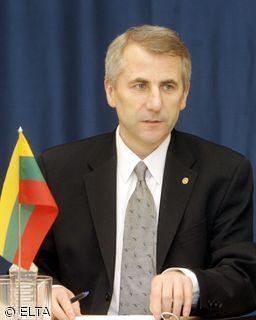Debt-ridden tech companies find new ways to earn money
Published:
9 May 2001 y., Wednesday
The wireless industry is quickly becoming a leader in creative finance, as one company after another attempts to reconcile the debt they incurred after buying third-generation (3G) spectrum. Other companies are simply trying to remain liquid at a time when telecom spending is down sharply and revenue streams have all but dried up. But the amount of activity over the past several weeks has been mind-boggling, with several major international telecom companies playing a high-stakes game of musical chairs. Most of the action currently revolves around British Telecom, which lost its chairman, 35-year BT veteran Sir Iain Vallance. Sir Iain resigned amid a swarm of criticism over the company’s costly venture into 3G mobile networks, and he was promptly replaced by Sir Christopher Bland, chairman of the BBC, who wasted no time in announcing BT’s new direction. Sir Christopher has the unenviable task of reducing BT’s monstrous $43 billion debt, and it quickly became clear how he intended to do that.
Last week alone, the company announced the sale of stakes in Spain’s No. 2 mobile carrier, Airtel; Japan Telecom’s mobile phone unit, J-Phone; and Malaysia’s Maxis Communications for a total of $7 billion. In addition, the company will be selling its London headquarters and its fleet of cars. Add to that the $7 billion the company hopes to recover with a rights issuance as early as this week, and it’s well on its way toward improving its fast-declining credit rating.
Šaltinis:
RED HERRING
Copying, publishing, announcing any information from the News.lt portal without written permission of News.lt editorial office is prohibited.
The most popular articles
 When you fill up your car with petrol you often find that your hand will reek of petrol unless you have worn gloves.
more »
When you fill up your car with petrol you often find that your hand will reek of petrol unless you have worn gloves.
more »
 The EU is going through its worst recession since WWII. Inflation has slowed, but employment and public finances are hard hit. The situation should stabilise in 2010.
more »
The EU is going through its worst recession since WWII. Inflation has slowed, but employment and public finances are hard hit. The situation should stabilise in 2010.
more »
 In the current economic environment, banks should carefully analyze the current and future total cost of ownership of their technology assets, and evaluate the outsourcing alternative.
more »
In the current economic environment, banks should carefully analyze the current and future total cost of ownership of their technology assets, and evaluate the outsourcing alternative.
more »
 Commission proposes first EU law on hedge funds and issues guidelines on bank pay practices.
more »
Commission proposes first EU law on hedge funds and issues guidelines on bank pay practices.
more »
 On 30 April, Lithuania’s Minister of Foreign Affairs Vygaudas Ušackas took part in the round table discussion “The European Union’s External Trade Policy and Lithuania’s Positions: Threats and Possibilities for the Lithuanian Industry”.
more »
On 30 April, Lithuania’s Minister of Foreign Affairs Vygaudas Ušackas took part in the round table discussion “The European Union’s External Trade Policy and Lithuania’s Positions: Threats and Possibilities for the Lithuanian Industry”.
more »
 Since 28 April this year, the clients of AB Bank SNORAS will be able to process their financial matters in a clearer and more user-friendly environment of “Internet Bank+” system.
more »
Since 28 April this year, the clients of AB Bank SNORAS will be able to process their financial matters in a clearer and more user-friendly environment of “Internet Bank+” system.
more »
 2009 ageing report: Europe tackling the challenge of an ageing population but the recession threatens a setback.
more »
2009 ageing report: Europe tackling the challenge of an ageing population but the recession threatens a setback.
more »
 More choice, investment and security of supply lie at the heart of the 3rd energy package.
more »
More choice, investment and security of supply lie at the heart of the 3rd energy package.
more »
 Swine flu, a new strain of influenza, has so far left more than a hundred dead. But in one sector, the illness could have huge benefits.
more »
Swine flu, a new strain of influenza, has so far left more than a hundred dead. But in one sector, the illness could have huge benefits.
more »
 Central European bargain hunters are crossing borders for the best buys. Slovakian shoppers in Hungary are making the most of their new eurozone membership.
more »
Central European bargain hunters are crossing borders for the best buys. Slovakian shoppers in Hungary are making the most of their new eurozone membership.
more »